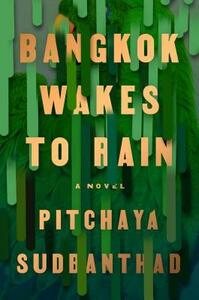Take a photo of a barcode or cover
informative
reflective
sad
medium-paced
adventurous
informative
mysterious
reflective
medium-paced
Plot or Character Driven:
A mix
Strong character development:
Yes
Loveable characters:
Complicated
Diverse cast of characters:
Yes
Flaws of characters a main focus:
Complicated
challenging
emotional
reflective
sad
tense
medium-paced
Plot or Character Driven:
Character
Strong character development:
Yes
Loveable characters:
Yes
Diverse cast of characters:
Yes
Flaws of characters a main focus:
Yes
informative
reflective
sad
slow-paced
Plot or Character Driven:
Character
Strong character development:
No
Loveable characters:
No
Diverse cast of characters:
Yes
Flaws of characters a main focus:
No
dark
emotional
reflective
relaxing
slow-paced
Plot or Character Driven:
A mix
Strong character development:
Yes
Loveable characters:
Complicated
Diverse cast of characters:
Yes
Flaws of characters a main focus:
Complicated
A series of interconnected tales set around a building in Bangkok. There are a few moments and narratives that link and make you go ooooh. A few stories are interesting to follow over the years - in particular I loved Mai and Pig. But it frequently feels disjointed, and it really suffers for a lack of dating - if every chapter started with the year it's set in it would flow SO much better. It jumps around times so much it becomes disorientating when they start talking about CD Players and internet when you swore they weren't invented yet. I like what it was trying to do and the glimmers where it worked were enthralling, they were just very few and far between.
emotional
reflective
medium-paced
Plot or Character Driven:
A mix
Strong character development:
No
Loveable characters:
Complicated
Diverse cast of characters:
Complicated
Flaws of characters a main focus:
Yes
Some parts were great, some - a bit boring. I think it would be much better, if it were shorter. But it did make me miss Bangkok.
Have you ever read a book and you know it was objectively good but you just couldn’t get into it? That was Bangkok Wakes To Rain for me.
Sudbanthad is a clearly talented writer — there were so many creative and beautifully written scenes that I would find myself lost in. However, it’s almost too creative (is that a thing?) to where I found myself getting lost in the storylines.
This book shows Bangkok (Krungtheup) through the generations — colonialism, modern, and post-modern — through many different perspectives . I thought it was a beautiful homage to a city, but these storylines blurred together, which was artistic, but ultimately, confusing. I felt that there was no real conclusion, either, as the book kept going but with no real goal or point (imo).
Sudbanthad is a clearly talented writer — there were so many creative and beautifully written scenes that I would find myself lost in. However, it’s almost too creative (is that a thing?) to where I found myself getting lost in the storylines.
This book shows Bangkok (Krungtheup) through the generations — colonialism, modern, and post-modern — through many different perspectives . I thought it was a beautiful homage to a city, but these storylines blurred together, which was artistic, but ultimately, confusing. I felt that there was no real conclusion, either, as the book kept going but with no real goal or point (imo).




